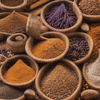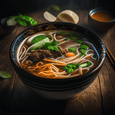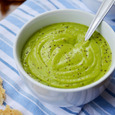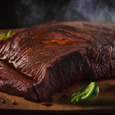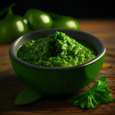Longevity is a subject that has always fascinated humanity. From scientific research to cultural practices, people have been eager to uncover the key to living a long and healthy life. One area that offers valuable insights into this secret is culinary traditions from various parts of the world. Let's embark on a journey of discovery as we explore some of these fascinating culinary practices and their contribution to longevity.
Japanese Cuisine: The Art of Balance
Japan is renowned for its culinary expertise and its population's impressive longevity. One key aspect of Japanese cuisine is the emphasis on balance. Meals typically consist of a variety of fresh ingredients, including lean proteins, seafood, vegetables, and whole grains. Portion sizes are moderate, and there is a strong focus on presentation. The Japanese also practice "hara hachi bu," a cultural tradition of eating until you are 80% full. By practicing portion control and consuming a wide range of nutrient-dense foods, the Japanese have unlocked the secret to a healthier and longer life.
Mediterranean Diet: The Taste of Longevity
The Mediterranean region is famous for its delicious and healthy cuisine. The Mediterranean diet is characterized by an abundance of fruits, vegetables, whole grains, legumes, and healthy fats like olive oil. Fish and poultry are favored over red meat, and moderate consumption of red wine is encouraged. This diet is rich in antioxidants, omega-3 fatty acids, and fiber, all of which contribute to heart health and longevity. The Mediterranean diet has been extensively studied and is associated with a reduced risk of numerous chronic diseases, making it a cornerstone of healthy living.
Indian Spices: The Flavorful Path to Longevity
Indian cuisine is not only famous for its vibrant flavors but also for its powerful spices, many of which offer health benefits. Turmeric, for example, contains curcumin, a compound known for its anti-inflammatory properties. Spices like cinnamon, ginger, and cardamom also possess numerous medicinal qualities. These spices, combined with a diverse array of vegetables, lentils, and whole grains, make Indian cuisine a formidable contender for promoting longevity. The anti-inflammatory and antioxidant properties of these spices contribute to overall well-being and healthspan.
Okinawan Secrets: The Blue Zone Mystery
Okinawa, an island in Japan, is renowned for having one of the highest concentrations of centenarians in the world. The Okinawan diet is based on plant-based foods, such as sweet potatoes, bitter melons, tofu, and seaweed. Fish is consumed in moderation, and pork and beef are rare treats. The Okinawans have a cultural practice called "Hara hachi bu," similar to the Japanese, where they eat until they are 80% full. This moderate caloric intake, combined with a rich variety of nutrient-dense foods, contributes to the longevity of the Okinawan people.
Conclusion
The secrets to longevity may lie within the culinary traditions from around the world. From the Japanese emphasis on balance and portion control to the Mediterranean diet's focus on fresh, whole foods, each culture contributes its unique practices to promote a longer and healthier life. Indian spices add flavor and medicinal benefits, while the Okinawan lifestyle showcases the power of plant-based nutrition. By incorporating elements from these culinary traditions into our own lives, we can unlock the secrets of longevity and embrace a healthier future.
So why not embark on a culinary journey? Explore the world and discover these secrets firsthand. Your taste buds may thank you, and you might just stumble upon the key to a longer and healthier life.



